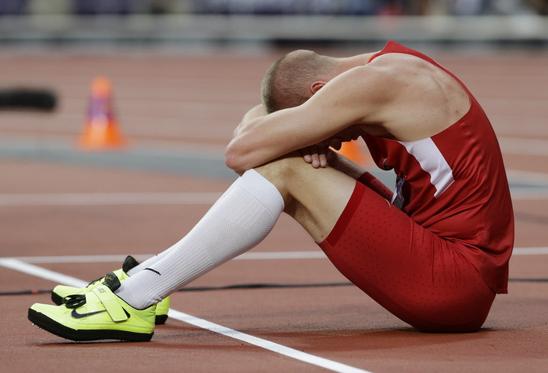
Any successful athlete requires the involvement of performance coaches to help them achieve physical excellence. However, psychological coaching is also needed to help athletes reach successes. Atheletes need to deal with their “inner game” and this fact is often downplayed by many sporting teams. We have often heart about physical preparations, nutrition and diet, training equipment selections and others. However, there is less understanding associated with the psychological aspect of enhancing performance. Psychologists are also needed to mend athletes with less than ideal psychological conditions.
Athletes should understand the relationship between their performance, behaviour, thoughts and feeling. In reality, all these factors are linked and if we change one, we could change all of them. Awareness of these four factors could provide us with an ability to adjust our performance. For example, many athletes seem to have patterns of poor performance and it could be linked to specific psychological conditions. As an example, a golfer may seem to have repeated poor performance when playing at a particular hole or course.
Once installed, this psychological pattern can be hard to remove and all triggers should be replaced so we could invoke positive performance instead, regardless of the location. Experienced therapists should know how to switch something from negative to positive and to certain extent; our mind can be reprogrammed to help us achieve excellence. Everyone has a set of beliefs and values that work on unconscious level that can drive motivation, actions and choices.
In some cases, it is important a circle of excellence. It is the place where we anchor positive resource that can be recalled to trigger something immensely useful. It is a natural thing in sports to use specific equipments or spaces, where all athletes could achieve something much more. This should help up to get positive impacts on performance. As an example, we could use the act of gripping a golf club as a powerful anchor to achieve something better. Emotional triggers could be used to invoke specific programming, which will have powerful impact.
There are specific underlying automatic reactions that can be used to trigger our performance. As an example, there are triggers that can make us feel better and more resistant to anxiety. In this case, athletes could understand how to release unhelpful emotional issues that could adversely affect their performance. There are specific interventions that can have a huge impact on performance and training. Athletes’ should start to perceive this a natural part of their overall condition. There are key motivators that can affect preparation of skill, performance and training.
There are many methods counsellors can use to deal with obstacles to personal development and changes. As an example, we could have supportive internal dialogue that can support our performance further. Eventually every belief related to our sporting performance will be represented internally. In general, psychological approaches can really help athletes to excel in so many ways. There are many dramatic changes we could attract and we could also get more flexibility and choice.
















